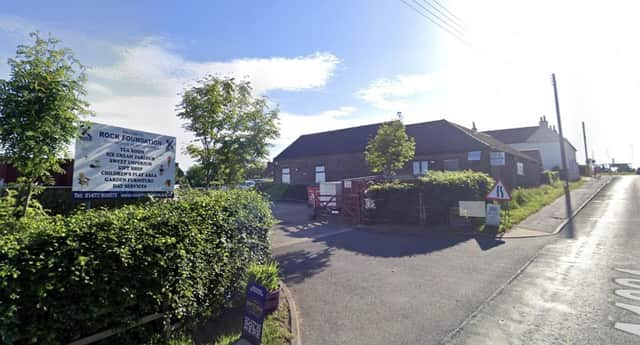Green light for Caistor charity's solar farm amid ongoing energy crisis


Although primarily based in Grimsby, The Rock Foundation maintains a facility at Top House Farm, providing support accommodation for 12 vulnerable adults.
The organisation sought permission from West Lindsey District Council to install 99 solar panels on land to the rear of the site that have the capacity to generate over 90% of the site’s daytime electricity consumption, thereby significantly offsetting their energy needs.
Advertisement
Hide AdAdvertisement
Hide AdThe application drew objections from local residents concerned that the modern technology would mar the area’s natural beauty.
Writing to the council, Craig and Jane Henderson, of Riby Road, said: “We realise the need for Green energy and in general support it, but installing solar panels on land which is bordering Waterhills, which is an area of natural beauty, is not acceptable.
“In the application, it says that the solar panels will be out of sight, which isn’t true as they will stick out like a sore thumb when you approach the site as you are walking or driving from Caistor up the hill.”
Caistor Town Council shared these concerns and recommended that WLDC reject the application.
Advertisement
Hide AdAdvertisement
Hide AdDespite this, newly elected Leader Trevor Young (Liberal Democrat) commended the charity for its “forward-thinking” approach, stating that with appropriate landscaping, the solar installation would blend seamlessly into the environment.
He added: “They provide what is a valuable service to the community and I see no objection to this whatsoever.”
Councillor Ian Fleetwood (Conservative), former Chairman of the Planning Committee later proposed a site visit as he reminded members to focus on the potential impact of the development on the local area, not the identity of the applicant.
The suggestion was ultimately voted down as the remainder of members voted to approve the application, provided the developers supply detailed landscaping plans and sow wildflower seeds to support the local bee population.